What is hepatitis C? - Fact Sheet for Consumers
Page last updated: 1 June 2017
What is hepatitis C?
Hepatitis C is an infectious disease that attacks the liver, causing inflammation. It can lead to cirrhosis, end-stage liver disease, liver cancer, and sometimes death. Six different genotypes of hepatitis C have been identified, some of which have subtypes. Genotypes 1 and 3 are the most common causes of hepatitis C in Australia and together make up 90% of all cases.
New medicines available for hepatitis C on the PBS
Recent advances in antiviral treatment have led to the development of new medicines for treating hepatitis C, which have a cure rate of greater than 90 per cent. These treatments are also shorter, less complex and much better tolerated than current therapy. A range of treatments are available through the PBS. The medicines that are currently available are included in the General Statement for Drugs for the Treatment of Hepatitis C.
Who is eligible for these new treatments?
The medicines are available through the PBS for all people, over the age of 18, with chronic hepatitis C. An individual’s suitability for the various treatment regimens will be determined by the person’s disease genotype, whether or not they have cirrhosis of the liver, and whether they have previously been treated for their hepatitis C infection.
Patients are eligible for the medicines in accordance with the restrictions outlined in the PBS Schedule. The management of an individual’s medical condition, including deciding the most appropriate therapy option/s, is essentially up to the professional clinical judgement of the treating practitioner.
What does treatment with the new medicines involve?
Under the various treatment regimens, a complete course of the new medicines ranges from 8 to 24 weeks, depending on the person’s genotype and treatment history and the drugs which the prescriber recommends. The most common course of treatment lasts 12 weeks.
Some treatments require only 1 to 2 tablets once or twice a day. For some treatment regimens, up to three medicines may be required to be used together. A small number of patients may need to use an injection as well as taking tablets.
What is the cost of the new medicines?
Patients will pay just the normal PBS co-payment for a prescription of these medicines – currently $6.30 for concessional patients and $38.80 for general patients. These co‑payments can now be discounted by $1, which could reduce the cost further to just $5.30 or $37.80 per prescription. Without subsidy, the high prices of these medicines would put them beyond the reach of most Australians.
Who can prescribe these new treatments?
- States and territories may have specific requirements about prescriber eligibility for the new medicines in their jurisdiction.
- For the PBS subsidy, where state or territory requirements allow, all medical practitioners, including general practitioners (GPs), and authorised nurse practitioners, experienced in the treatment of chronic hepatitis C infection, are eligible to prescribe the new medicines.
- All other medical practitioners and authorised nurse practitioners are also eligible to prescribe under the PBS, provided that is done in consultation with a gastroenterologist, hepatologist, or infectious disease physician experienced in the treatment of chronic hepatitis C infection. For example, a medical practitioner or authorised nurse practitioner not experienced in the treatment of chronic hepatitis C infection must consult with one of the specified specialists by phone, mail, email or videoconference in order to meet the prescriber eligibility requirements.
Will my local pharmacy stock these medicines?
These new treatments are very expensive. Some pharmacists only stock very expensive medicines on an as needed or individual patient basis. However, as with any other PBS subsidised medicine, a pharmacist can contact their medicine supplier (usually a wholesaler) to arrange delivery of the medicine, generally within a day if required.
More detailed information about the PBS subsidy of these medicines is available on the PBS website.



